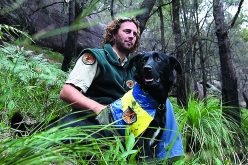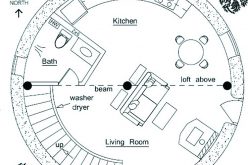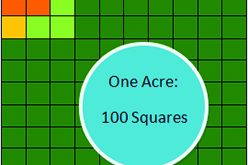
Courtesy Photo
Making a difference means a variety of things to a variety of people.
Our genetics, values, family, and identities all play a role in how we derive meaning from life. But regardless of what we believe, there is one often overlooked method for making a difference that almost everyone can agree is important: lifestyle. How we live and the way we treat each other are big players on the global stage, while volunteerism and philanthropy are typically the stars of the show.
Donating a few hours on a Saturday or a few dollars to a charity are certainly important – without these two actions, much of the good accomplished in the world would fade fast. Yet when comparing a 40-hour work week to a couple of hours volunteering, it’s clear that we invest far more time into our jobs than we do as volunteers. And when the average donation is compared to the average mortgage or rent, it’s easy to see where so much of the typical person’s money goes.
Is this to say that we should all donate the amount of our mortgages to charity, or quit our jobs to volunteer? No; rather than taking away our jobs and houses in order to make a difference, we could use them (and many other aspects of our lifestyle, if desired) as tools for doing good.
And there are hundreds of ways to do this. Sure, most people can’t agree on which lifestyle is the best choice for everyone, but many people know what’s best for them individually (perhaps after some personal exploration). This isn’t always based exclusively on choice, yet even those struggling in poverty can use it as a tool for making a difference. For example, used clothing is often cheaper than new, and it’s also a way to support the environment or charities like the Salvation Army.
Goals like optimal health or wealth will make for different lifestyle choices. Someone who wants to improve their health may focus on eating organic food or bicycling to work, while someone who wants to make lots of money may choose to become an effective altruist “earning to give” in a lucrative career field that makes it possible for them to donate thousands of dollars to their favorite charity.
With creativity, persistence, and perhaps some advance planning, using lifestyle as a tool for making a difference becomes a real possibility. Everyone has unique resources (physical and intangible) at their disposal, so there is a lot of “tool diversity” out there. From toothbrushes to careers, from kind words to commutes, every aspect of life is a small chance to change the world and inspire others to do the same.
Regardless of our differences, we all have the ability to take a look at our own lifestyles and ask ourselves, “How can I apply my values to my daily life and make choices that better the world?”
Amanda Bancroft is a writer, artist, and naturalist building an off-grid earthbag cottage for land conservation on Mt. Kessler. She and her husband Ryan blog about their adventures and offer a solar-hosted online educational center on how to make a difference with lifestyle choices at: www.RipplesBlog.org.










